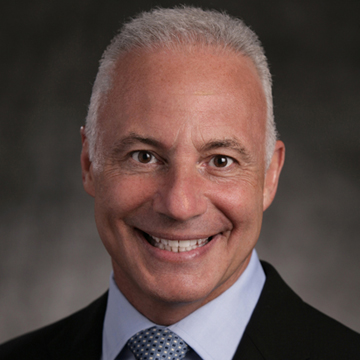Collette Kelly-Goble
Collette Kelly-Goble’s shoulder trouble started after lifting her garage door – an everyday task she did without much concern or thought.
The 79-year-old Rockford resident easily remembered the day three years ago. Her daughter was recovering from surgery, and Collette was helping her to the car. As Collette lifted the non-automatic door, she managed to tear the rotator cuff in both her right and left shoulders and hurt her foot.
“Yes, I was in pain, but at the time, my daughter was battling breast cancer, and caring for her was my No. 1 priority,” she said.
After experiencing recurring discomfort in her right shoulder, she made an appointment with OrthoIllinois in 2017, where she was diagnosed with rotator cuff arthropathy. To stay focused on helping her daughter, she chose to delay surgery and instead opted for physical therapy.
By September 2018, she was ready for the next stage of treatment – a reverse right shoulder replacement surgery with Dr. Brian Bear.
“I can’t say enough about Dr. Bear. He was personable and professional, and the operation went great,” she said. “I always tell people, ‘Why go for a shoulder repair when you can get a brand new one?’
“The doctors understood my reasons for delaying the repair surgery – to care for family – but now it was time to take care of myself.”
Dr. Bear said it’s not uncommon for patients to delay surgery for a multitude of reasons. He explained that individuals who have a large chronic rotator cuff tear risk developing rotator cuff arthritis of the shoulder.
“For patients who have significant shoulder pain secondary to a rotator cuff tear, repairing the tear is thought to prevent arthritis from developing,” he said. “The most important reason to have surgery to repair a rotator cuff tendon tear is to reduce pain. The second most important reason is to improve shoulder function. I only recommend surgery for patients who have significant shoulder pain secondary to their rotator cuff tendon tear. For patients who have a rotator cuff tendon tear and do not have significant pain, surgery is not recommended.”
While Collette admitted she wasn’t completely pain-free following the procedure, she was pleasantly surprised by the recovery process. Her shoulder no longer wakes her up at night or causes pain with activity.
Dr. Bear said, in general, being in good health is the most important factor in assuring a smooth recovery. Obesity, diabetes, heart disease and other chronic conditions are risk factors for complications after surgery.
“Any patient who is contemplating shoulder replacement should try to maximize their cardiovascular condition and have a body mass index (BMI) of less than 30. If patients have diabetes, maintaining good blood sugar control prior to surgery is important to reduce complications. A hemoglobin A1c less than 7 is recommended for elective shoulder surgery.
“Having family support for aftercare is also important. Patients who have a strong social network of family and friends tend to do better after surgery. A positive mental outlook cannot be underestimated. Patients who are positive and actively involved during the healing and rehabilitation phase of the procedure tend to do much better than passive, withdrawn patients.”



